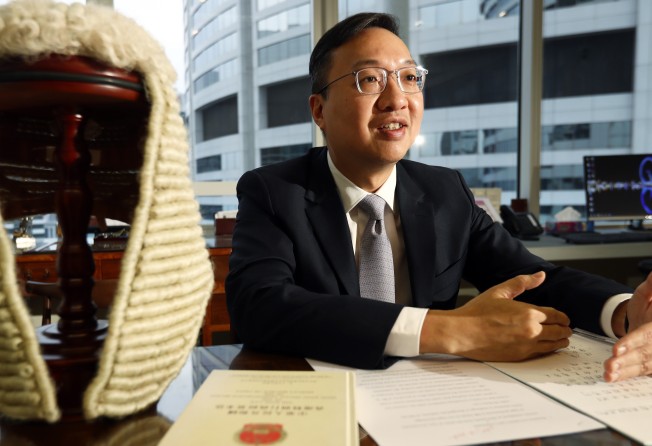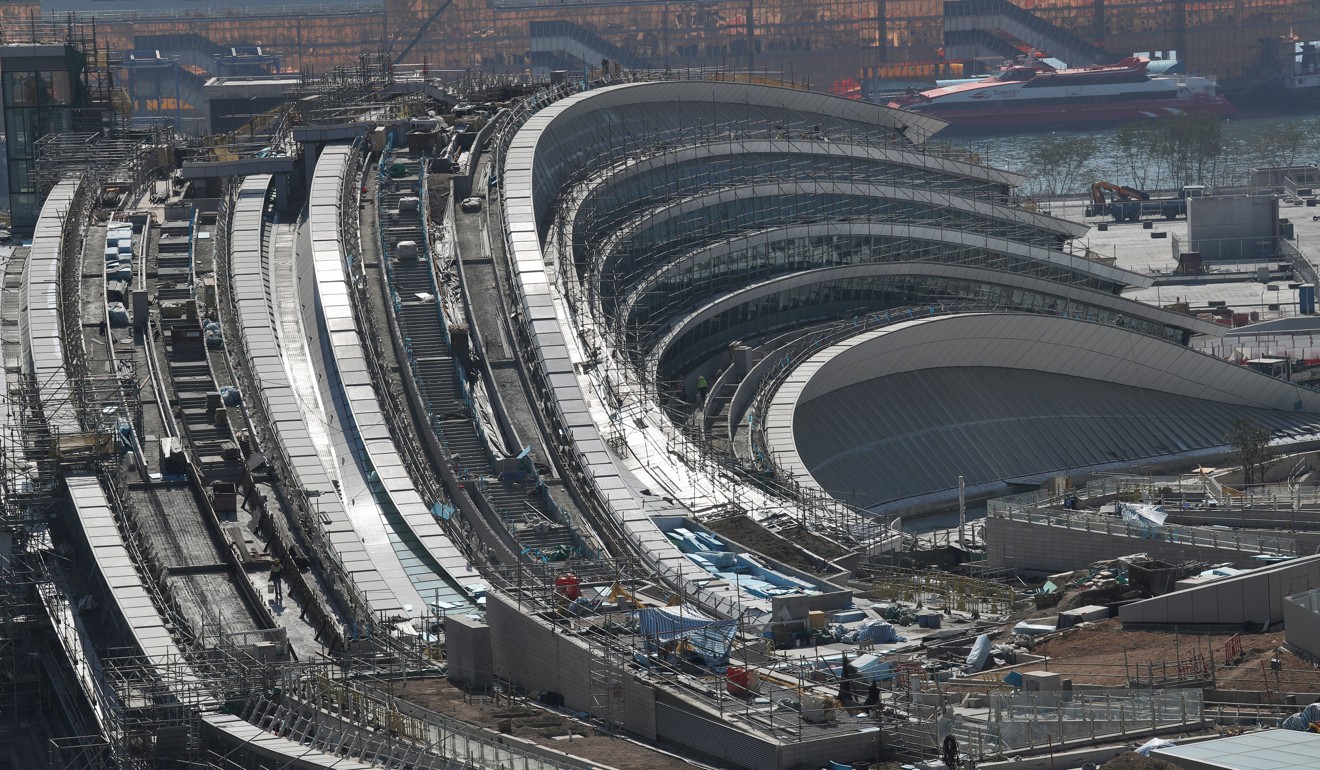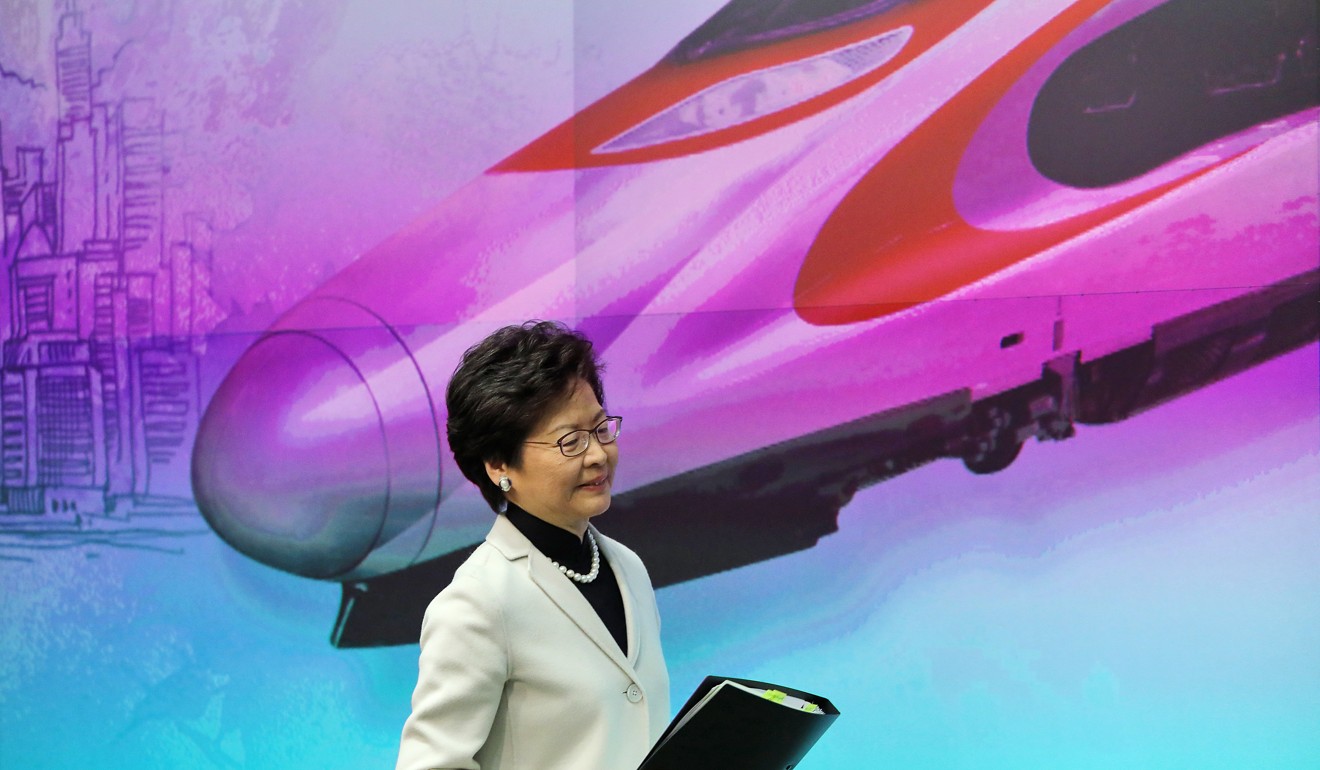Make sure joint-checkpoint plan is a ‘one-off’, says Hong Kong Bar Association chairman
Paul Lam says a solution to the row over the controversial plan is to amend the Basic Law to ensure mainland law does not crop up in other parts of the city

Public trust in Hong Kong’s rule of law can be preserved by amending Hong Kong’s mini-constitution to guarantee that the contentious joint-checkpoint plan for a cross-border rail link is just a “one-off”, the chairman of the Bar Association said on Tuesday.
Paul Lam Ting-kwok SC also said Beijing and city officials bore a “heavy duty” to explain why the so-called co-location arrangement – which would give mainland officers almost full jurisdiction over part of the West Kowloon terminal leased to them – would be in line with the Basic Law, even though it clearly stated no national laws should be enforced in Hong Kong except those listed in its Annex III.
Last week, the National People’s Congress Standing Committee, China’s top legislative body, approved the checkpoint plan for the high-speed rail link from the heart of Hong Kong to the mainland city of Guangzhou, dismissing any notion that it would diminish the city’s level of autonomy protected in the Basic Law.
Lam said the committee’s legal reasoning was “unconvincing”.
“I think the safest way must be amending the Basic Law … by adding a provision to make it an exception for this co-location arrangement,” Lam said. “That could at least have the effect of reassuring people that it is a one-off and very exceptional case.”
Chief Executive Carrie Lam Cheng Yuet-ngor refused to guarantee last week that the plan would not set a precedent, declaring instead that it was beneficial to the city’s development.
“This is the point that makes people worry. [Their concern] is that if this method can be used in this occasion, then would the same method be used on another occasion when the subject matter is less innocent?” Paul Lam asked.
If this method can be used in this occasion, then would the same method be used on another occasion?
Amending the Basic Law would be a better alternative than the current arrangement, he said, as
the integrity of other general provisions of the mini-constitution would be maintained. That would restore public trust and confidence in the rule of law.
Article 159 of the Basic Law states that amendments can be submitted to the national legislature for consideration after securing the consent of two-thirds of local deputies to the National People’s Congress, two-thirds of Hong Kong’s Legislative Council members and the city’s chief executive.

A statement issued by the Bar Association last week complaining that the rule of law had been “severely” undermined by the plan, coupled with criticisms from the legal community, prompted Carrie Lam to join the fray by slamming “some people in the legal sector” for being “elitist” in thinking the city’s legal system was superior to that of the mainland’s.
Hitting back, Paul Lam told the Post: “My feeling is that perhaps these sort of comments are not very helpful in having a rational and objective discussion of the issue.”
The row over the checkpoint plan is centred on the interpretation of Article 18, which states that national law will not be applied to Hong Kong except for those relating to defence, foreign affairs and “other matters outside the limits”.

While Hong Kong lawyers, who operate on common law, took that at face value, Beijing and local officials disagreed, saying that since mainland laws would only be applied to part of the train station – not the whole of the city – the arrangement did not contravene Article 18.
At the moment, Lam said, the arrangement appeared to be “not convincing” and “arbitrary” without sufficient explanation.
“If the situation has not improved, that would certainly damage people’s trust and confidence in the integrity of the Basic Law and all the trust in ‘one country, two systems’,” he said, referring to the model under which Hong Kong is guaranteed a high degree of autonomy from Beijing for half a century.
Lam, who is seeking a second term as Bar Association chairman, also brushed aside criticism that the lawyers’ body under his watch had not spoken out against threats that might diminish the rule of law.
The firm statement put out by the Bar Association had provided an “honest and considered view”, he added and it should be taken seriously.
He said it would be “speculative” at this stage to decide any further moves, but ruled out teaming up with other groups in society as the association must uphold its independence.